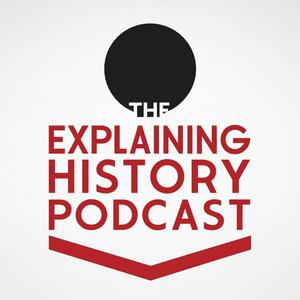In this episode of the Explaining History Podcast, we're joined by writer Susan Barrett to discuss her new novel, *All Cats Are Grey*—a dark and compelling work of historical fiction set against the backdrop of the London Blitz.
The book tells the story of four very different people, each of whom has committed what might be called a "necessary murder" in their past. They come together during the chaos of the blackout to use their lethal skills against a serial rapist and murderer who is exploiting the wartime disruption to terrorise the bomb-scarred streets of London. This villain is inspired by a real figure: Gordon Cummings, an infamous but largely forgotten serial killer of the Blitz era.
But our conversation ranges far beyond the plot. Susan, whose background is in film and television research, shares fascinating insights into how historical research has changed—and what we lose in the age of the internet. She discusses the serendipity of physical archives, the power of handwritten ledgers and Victorian photographs, and the surprising voices uncovered by the Mass Observation project that challenge our assumptions about "respectable" wartime behaviour.
We also delve into the mythology of the Blitz itself. How does the reality of crime, class division, and social disruption sit alongside the cherished national story of plucky unity? What did people actually think and do when the bombs were falling? And why does Britain have such a peculiar fascination with poisoners and serial killers?
From the tragic case of Timothy Evans and Reginald Christie to the Jack the Ripper industry, from the origins of the welfare state to the echoes of COVID—this is a wide-ranging conversation about history, memory, and the stories we tell ourselves.
*All Cats Are Grey* is published on 24th April by Bathwick Hill Press, a small independent publisher. Please consider supporting independent bookshops and publishers.
**Topics covered:**
- The changing nature of historical research in the internet age
- The Gordon Cummings case and wartime crime
- Mass Observation and authentic voices from the past
- The mythology of the Blitz versus historical reality
- Britain's fascination with serial killers and poisoners
- How COVID helps us understand wartime disruption
- The importance of independent publishing
---
*If you enjoy the podcast, please consider supporting us on Patreon for ad-free listening and exclusive content.*
Explaining History helps you understand the 20th Century through critical conversations and expert interviews. We connect the past to the present. If you enjoy the show, please subscribe and share.
▸ Support the Show & Get Exclusive Content
Become a Patron: patreon.com/explaininghistory
▸ Join the Community & Continue the Conversation
Facebook Group: facebook.com/groups/ExplainingHistoryPodcast
Substack: theexplaininghistorypodcast.substack.com
▸ Read Articles & Go Deeper
Website: explaininghistory.org
Hosted on Acast. See acast.com/privacy for more information.


